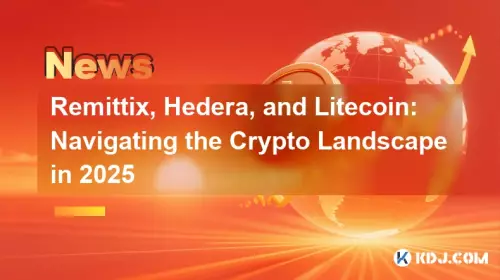 |
|
 |
|
 |
|
 |
|
 |
|
 |
|
 |
|
 |
|
 |
|
 |
|
 |
|
 |
|
 |
|
 |
|
 |
|
量子コンピューティングは、ブロックチェーン業界にとって期待と脅威の両方をもたらします。従来のコンピューターよりも速く複雑な問題を解決できる可能性があるため、現在の暗号化方式が時代遅れになる可能性があります。ブロックチェーン分野で著名なヴィタリック・ブテリン氏は、ブロックチェーンネットワークにおける量子対応の脆弱性を防ぐために、耐量子アルゴリズムと、アカウント抽象化や8192ビット署名などの強化されたセキュリティ対策の必要性を強調した。

Quantum Computing: Unveiling Potential, Navigating Threats
量子コンピューティング: 可能性を明らかにし、脅威を回避する
The advent of quantum computing has ushered in an era of both transformative promise and potential threats in the realm of computer science. Its extraordinary capabilities in solving complex problems at unprecedented speeds have captivated the attention of researchers, industry experts, and everyday users alike. However, this technological marvel also presents a formidable challenge to existing encryption methods and blockchain security.
量子コンピューティングの出現により、コンピューター サイエンスの分野では、変革の期待と潜在的な脅威の両方が存在する時代が到来しました。複雑な問題を前例のない速度で解決するその並外れた能力は、研究者、業界の専門家、そして日常のユーザーの注目を同様に集めています。しかし、この驚異的な技術は、既存の暗号化方式とブロックチェーンのセキュリティに対して大きな課題を突きつけています。
Understanding Quantum-Enabled Threats
量子を利用した脅威を理解する
Quantum-enabled threats refer to a myriad of cybersecurity risks and vulnerabilities that stem from advancements in quantum computing technology. The sheer power of quantum computers, harnessed through algorithms like Shor's algorithm, poses a grave threat to traditional encryption methods that safeguard sensitive data in transit.
量子対応の脅威とは、量子コンピューティング技術の進歩に起因する無数のサイバーセキュリティのリスクと脆弱性を指します。ショールのアルゴリズムなどのアルゴリズムを通じて利用される量子コンピューターの強力なパワーは、転送中の機密データを保護する従来の暗号化方式に重大な脅威をもたらします。
Current encryption algorithms, such as RSA and ECC, rely on mathematical problems that are computationally complex for conventional computers to solve. However, quantum computers can swiftly dismantle these algorithms, potentially exposing encrypted data to interception and decryption by malicious actors. This includes personal data, financial transactions, and government communications.
RSA や ECC などの現在の暗号化アルゴリズムは、従来のコンピューターでは解決できない計算的に複雑な数学的問題に依存しています。ただし、量子コンピューターはこれらのアルゴリズムを迅速に解体する可能性があり、暗号化されたデータが悪意のある攻撃者によって傍受および復号化される可能性があります。これには、個人データ、金融取引、政府通信が含まれます。
Furthermore, quantum-enabled threats extend beyond data encryption, encompassing potential attacks on blockchain networks and decentralized systems. Such attacks could compromise the integrity of transactions, disrupt consensus mechanisms, and undermine the security of digital assets.
さらに、量子対応の脅威はデータ暗号化を超えて広がり、ブロックチェーン ネットワークや分散型システムに対する潜在的な攻撃も含まれます。このような攻撃は、トランザクションの完全性を損ない、コンセンサスメカニズムを混乱させ、デジタル資産のセキュリティを損なう可能性があります。
Mitigating Quantum Threats: Quantum-Resistant Algorithms
量子の脅威を軽減する: 耐量子アルゴリズム
Despite the looming threat posed by quantum computers, researchers and industry leaders are actively developing countermeasures in the form of quantum-resistant algorithms. These algorithms are designed to withstand attacks from quantum computers, ensuring the continued security of encrypted data and digital transactions.
量子コンピューターによってもたらされる差し迫った脅威にもかかわらず、研究者や業界リーダーは、耐量子アルゴリズムの形での対抗策を積極的に開発しています。これらのアルゴリズムは、量子コンピューターからの攻撃に耐えるように設計されており、暗号化されたデータとデジタル トランザクションの継続的なセキュリティを確保します。
As Vitalik Buterin, the co-founder of Ethereum, has emphasized, there are quantum-resistant algorithms available for every vulnerable aspect affected by quantum computers. These algorithms, based on hash functions, lattices, and isogenies, provide a robust defense against quantum-based threats.
イーサリアムの共同創設者ヴィタリック・ブテリン氏が強調したように、量子コンピューターの影響を受けるあらゆる脆弱な側面に利用できる量子耐性アルゴリズムが存在します。これらのアルゴリズムは、ハッシュ関数、格子、および同質生成に基づいており、量子ベースの脅威に対する強力な防御を提供します。
However, Buterin acknowledges that while these solutions have been theoretically explored, their practical implementation remains a work in progress. Nevertheless, efforts are underway to achieve complete quantum resistance for both users and protocols.
しかし、ブテリン氏は、これらの解決策は理論的には検討されているものの、実際の実装はまだ進行中の作業であることを認めています。それにもかかわらず、ユーザーとプロトコルの両方に対して完全な量子耐性を達成するための取り組みが進行中です。
Quantum Resistance in Ethereum
イーサリアムの量子抵抗
To effectively counter quantum threats, Buterin advocates for the adoption of account abstraction in Ethereum. This feature would empower users to select quantum-resistant signature algorithms, enhancing the security of their accounts and transactions.
量子の脅威に効果的に対抗するために、ブテリン氏はイーサリアムでのアカウント抽象化の採用を提唱しています。この機能により、ユーザーは耐量子性署名アルゴリズムを選択できるようになり、アカウントとトランザクションのセキュリティが強化されます。
Additionally, he suggests bolstering the Ethereum consensus layer to withstand quantum attacks. Buterin proposes reconsidering the use of current signature schemes like BLS and adopting 8192-bit signatures per slot as a more secure alternative.
さらに、量子攻撃に耐えるためにイーサリアムのコンセンサス層を強化することを提案しています。 Buterin 氏は、BLS などの現在の署名スキームの使用を再考し、より安全な代替手段としてスロットごとに 8192 ビットの署名を採用することを提案しています。
BLS (Boneh-Lynn-Shacham) signatures play a pivotal role in Ethereum's Proof of Stake consensus mechanism. They enable efficient signature aggregation and verification, enhancing the scalability and efficiency of the network.
BLS (Boneh-Lynn-Shacham) 署名は、イーサリアムのプルーフ オブ ステーク コンセンサス メカニズムにおいて極めて重要な役割を果たします。これらにより、効率的な署名の集約と検証が可能になり、ネットワークの拡張性と効率が向上します。
8192-bit signatures, on the other hand, refer to the number of signatures processed per slot in the Ethereum blockchain. This number is critical as it represents the computational load that the network has to process. Effectively handling this load is crucial for Ethereum's Proof of Stake mechanism, where validators sign messages to secure the network.
一方、8192 ビット署名は、イーサリアム ブロックチェーンのスロットごとに処理される署名の数を指します。この数値は、ネットワークが処理する必要がある計算負荷を表すため、重要です。この負荷を効果的に処理することは、バリデーターがメッセージに署名してネットワークを保護するイーサリアムのプルーフ オブ ステーク メカニズムにとって非常に重要です。
A Quantum-Threat-Resistant Infrastructure
量子脅威に強いインフラストラクチャ
Buterin envisions a future where quantum threats will pose significant challenges to the blockchain ecosystem. To navigate this inevitable scenario, he suggests that the Ethereum blockchain may need to undergo a transformation to become a quantum-threat-resistant infrastructure.
ブテリン氏は、量子の脅威がブロックチェーンのエコシステムに重大な課題をもたらす未来を思い描いています。この避けられないシナリオを乗り切るために、彼はイーサリアムブロックチェーンが量子脅威に耐性のあるインフラストラクチャーとなるよう変革を遂げる必要があるかもしれないと示唆しています。
This transformation would entail incorporating quantum-resistant signature algorithms, strengthening the consensus layer, and implementing additional safeguards to protect against quantum-based attacks.
この変革には、量子耐性署名アルゴリズムの組み込み、コンセンサス層の強化、量子ベースの攻撃から保護するための追加の保護手段の実装が必要になります。
As the field of quantum computing continues to evolve, the need for robust and effective countermeasures against quantum-enabled threats becomes increasingly imperative. By embracing quantum-resistant algorithms, enhancing consensus mechanisms, and fostering a collaborative approach, the blockchain industry can safeguard its future and ensure the continued security of digital assets and transactions.
量子コンピューティングの分野が進化し続けるにつれて、量子を利用した脅威に対する堅牢かつ効果的な対策の必要性がますます高まっています。耐量子アルゴリズムを採用し、コンセンサスメカニズムを強化し、協力的なアプローチを促進することにより、ブロックチェーン業界は将来を守り、デジタル資産とトランザクションの継続的なセキュリティを確保できます。
免責事項:info@kdj.com
提供される情報は取引に関するアドバイスではありません。 kdj.com は、この記事で提供される情報に基づいて行われた投資に対して一切の責任を負いません。暗号通貨は変動性が高いため、十分な調査を行った上で慎重に投資することを強くお勧めします。
このウェブサイトで使用されているコンテンツが著作権を侵害していると思われる場合は、直ちに当社 (info@kdj.com) までご連絡ください。速やかに削除させていただきます。





























































